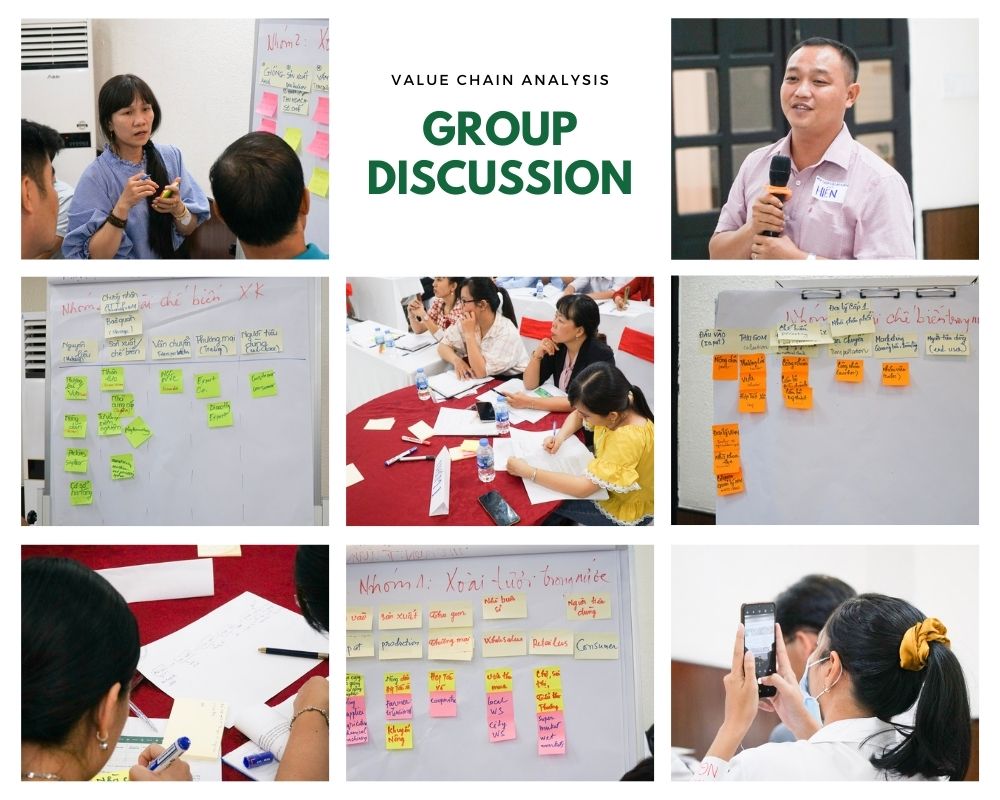Mango Business School is an initiative of “Strengthening The Mango Value Chain In The Mekong Delta” – a component of the GIC Viet Nam aims to enable stakeholders throughout the value chain to successfully implement identified innovations to enhance their business in terms of sustainability, climate change resilience and profitability.
The purpose of Mango Business School is to increase the knowledge capacity of key staffs of cooperatives, companies, Department of Agriculture and Rural Development, and other actors in the mango value chain on key subjects including production, harvesting, packing, post-harvest management, quality assurance, sales, marketing, and management.
On 26 July 2022, the first training of Mango Business School was organized in Cao Lanh city, Dong Thap province with the participant of 43 trainees coming from Cooperatives, Companies and the Department of Agriculture and Rural Development.

The full-day training provided trainees with informative approaches to value chain development in the Vietnam context. This introduction course provided a solid basis to start or further develop the mango value chains by discussing the 4 main topics:
- What is value chain?
- Introduction to value chain thinking
- Mapping of the value chain
- Value chain analysis
The Value Chain is a business-oriented approach that aims to capture the best value at all stages of production, processing, and trading from farmers to consumers. The value chain approach can provide a holistic view of the production process, from raw materials to final consumption. This allows learners to identify areas for improvements in product and information flows via strategic alliances and networks, as well as relationship management. With this approach, producers can improve their market access while buyers access more reliable and improved raw materials.

The value chain approach can help government officials identify bottlenecks in the production process and which policies are needed to address these bottlenecks. The purpose of the training is to spark the understanding of the value chain approach and its importance as well as explain the principles and scope of the value chain and examine the priority areas for value chain development.

The training will carry out the 2nd part of Value Chain Development in September 2022 which will focus on getting to know Rapid Diagnostic Appraisal (RDA); how to apply these tools to specific cases; and ways of translating the value chain analysis into value chain development.

